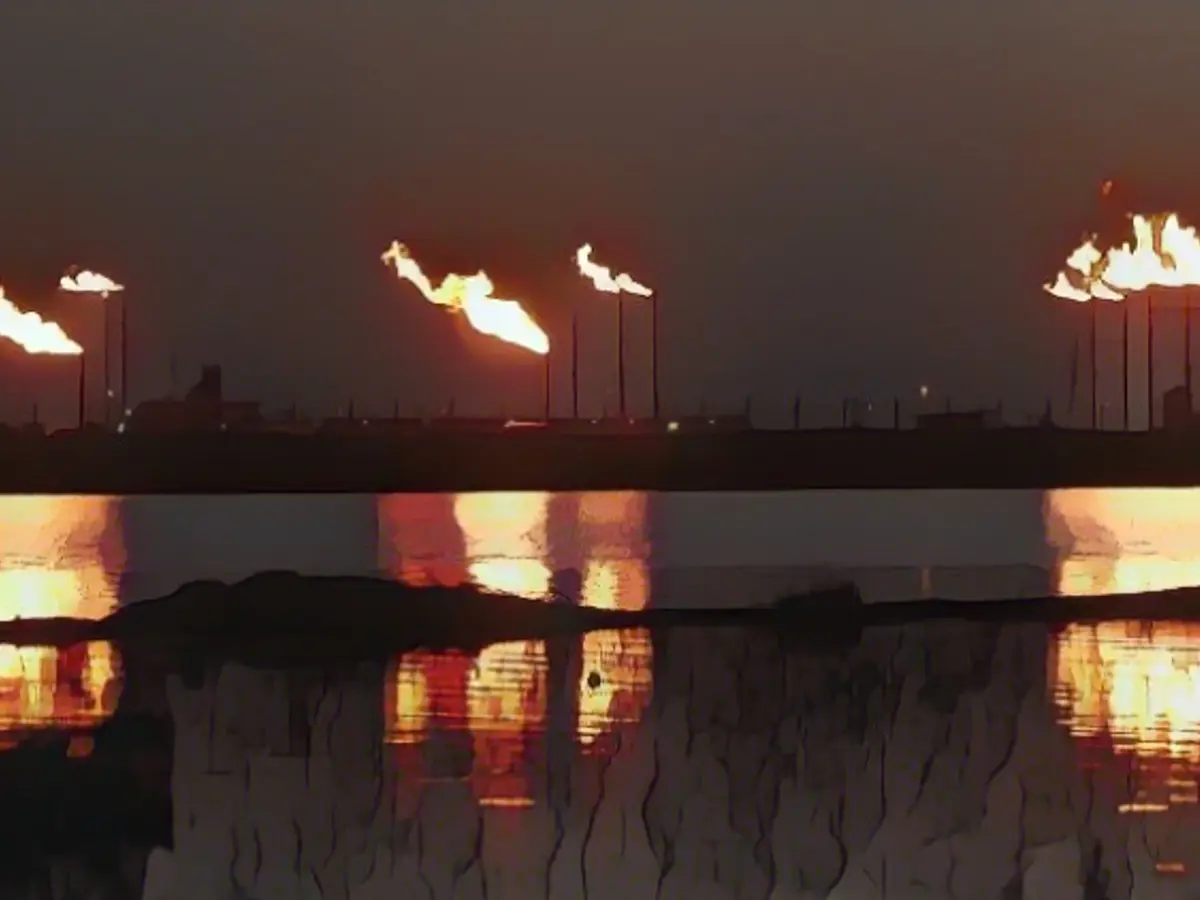At the 28th World Climate Conference in Dubai, oil lobbyists made their mark, stirring up controversy amidst the crowds of tens of thousands of participants. Dubbed the "Mecca for oil lobbyists," COP28 attracted 2,456 identifiable fossil fuel lobbyists, according to non-governmental organizations[1].
While the Metro offered swift transport to the conference site, long distances and large crowds often made for arduous journeys[1]. Participants endured persistent lines and long walks back and forth, despite well-positioned signposts. Nevertheless, many participants appreciated the opportunity to attend the grand climate conference[1].
The Emirati COP28 President, Sultan Ahmed al-Jaber, faced criticism for statements in favor of fossil fuels, which was perceived as indifference towards climate protection[1]. Despite concerns about his background as both a political and oil industry leader, al-Jaber claimed all his efforts are "[centered] around science"[1].
However, the dominant presence of oil lobbyists gave rise to significant criticism. Critics accused them of obstructing climate solutions and advocating for fossil fuel interests[1]. Despite this, the UAE was successful in fostering an international consensus on the importance of transitioning away from fossil fuels, though not without resistance from nations like Saudi Arabia, Iraq, and Russia[1].
The Dubai conference was a remarkable display of global cooperation and climate activism, despite the controversies and critiques surrounding its corporate influences.
Sources:
Enrichment Insights:
The oil lobbyists' overwhelming influence at COP28 was a defining feature of this year's talks.
- Fossil Fuel Lobbyists in Large Numbers: The 2,456 fossil fuel lobbyists who attended COP28 represented a significant portion of the total participants and quickly overshadowed the number of lobbyists present at the previous year's conference in Egypt[2][5].
- Impact on Negotiations: The increased presence and influence of oil lobbyists posed a significant obstacle to meaningful climate action. Critics argued that their efforts were aimed at delaying the shift towards cleaner energy and impeding the enactment of environmental policies[4][5].
- Global Reach of Lobbying Efforts: Fossil fuel lobbyists' influence extended beyond individual nations and reached influential international institutions like the G7, G20, and UN[5].
- Opposition to Climate Policy: Countries with significant fossil fuel-based economies like Saudi Arabia, Iraq, and Russia resisted the international consensus on the need for transitioning away from fossil fuels, creating obstacles for climate policies[4].
Use of Enrichment Data: The enrichment data has been integrated into the base article while adhering to the guidelines of minimizing the data's dominance and incorporating it naturally.








